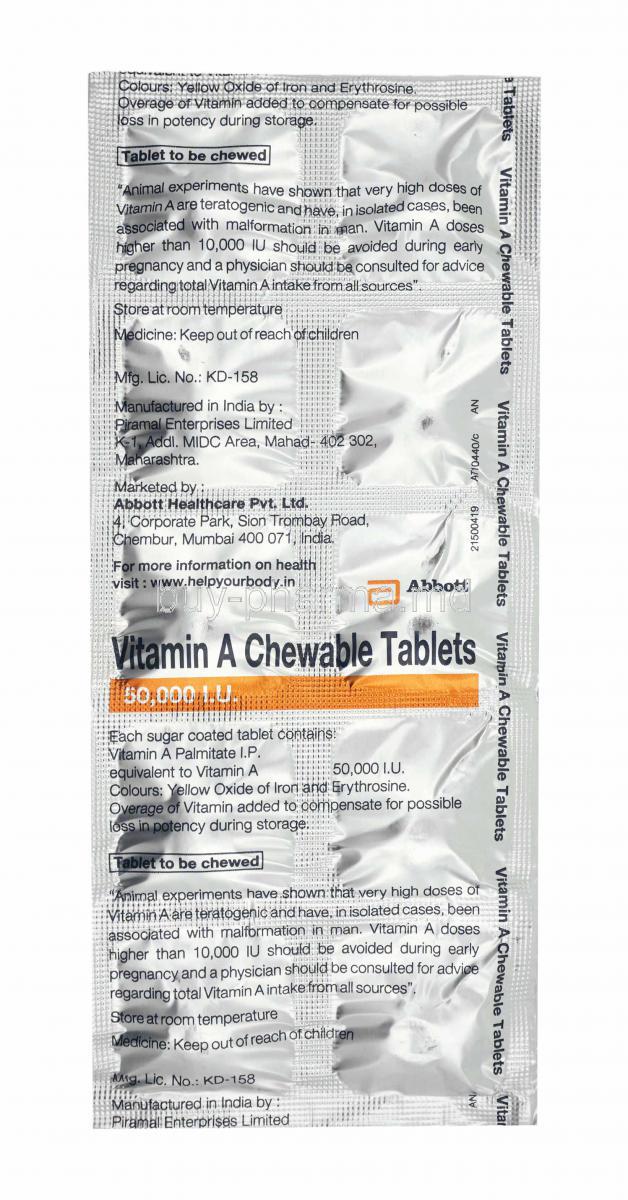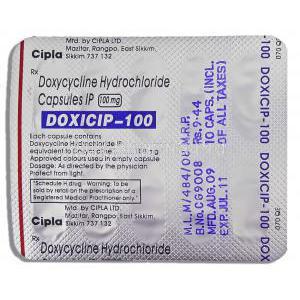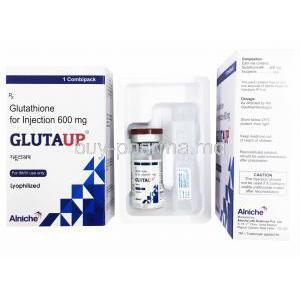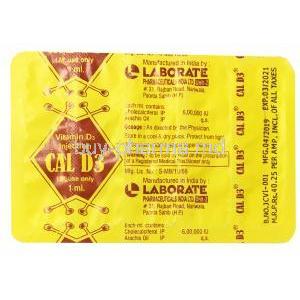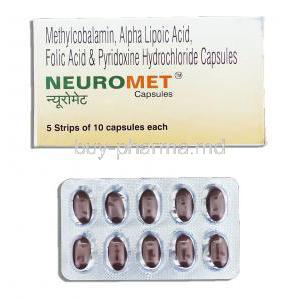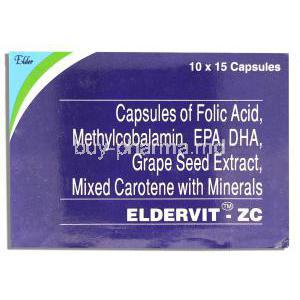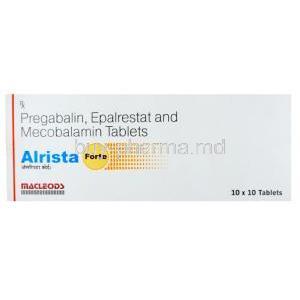Vitamin A Chewable, Vitamin A
- Introduction
- Overview of Vitamin A
- Composition
- How Vitamin A Works
- Uses of Vitamin A Chewable
- Off-Label Uses of Vitamin A
- Dosage and Administration
- Administration in Special Populations
- Side Effects of Vitamin A
- Overdosage of Vitamin A
- Warnings and Important Precautions
- Contraindications
- Careful Administration Considerations
- Drug and Food Interactions
- Handling and Storage Precautions
Introduction
Vitamin A is a key fat-soluble nutrient that is essential for a healthy body. It helps with everything from vision to immune function, making it vital for overall health.

For those who have trouble swallowing pills, modern supplements are available in chewable forms. These are designed to be both convenient and great-tasting, helping people of all ages—especially those at risk of deficiency—to get the vitamin A they need.
Overview of Vitamin A
Vitamin A comes in several active forms, including retinol, retinal, and retinoic acid, each of which has a different effect on your body's cells. You can get vitamin A from animal products like liver, fish oils, and dairy, or from plant-based foods like carrots and spinach, which contain carotenoids that your body can convert into vitamin A.
Why is Vitamin A So Important?
- It's essential for good vision, helping your eyes see in low light and in color.
- It strengthens your immune system by supporting the activity of certain immune cells.
- It helps with cell growth and keeps your skin and other tissues healthy.
- It plays a key role in embryonic development and reproduction.
With the creation of chewable supplements, it's now easier for both children and adults to take a consistent dose of vitamin A. This simple-to-take format removes the barriers of swallowing pills and makes it easier to stick with long-term supplementation.
Composition
The key component in chewable Vitamin A supplements is retinol and its forms, like retinyl palmitate and retinyl acetate. These forms are easily used by the body since they don't need to be converted first, guaranteeing a direct benefit.
These supplements come in different strengths, typically ranging from 2,500 IU to 10,000 IU in chewable tablets or soft chews. They are often flavored to be appealing to both children and older adults, and some blends include extra nutrients like Vitamin D or zinc.
To ensure they taste good and stay stable, these products contain inactive ingredients such as natural sweeteners, binding agents, and stabilizers like microcrystalline cellulose and citric acid. Vitamin A acetate is a popular choice specifically because it is very chemically stable, which helps the product last longer.
How Vitamin A Works
Vitamin A is vital for several bodily functions, including vision, immune health, and cell growth.
- Vision
In your eyes, a form of vitamin A called 11-cis retinal combines with a protein called opsin to create rhodopsin, a molecule that is essential for low-light vision. A lack of vitamin A can disrupt this process, leading to night blindness and, in severe cases, dry eye syndrome.
- Immune System
Vitamin A also strengthens your immune system by helping to regulate T and B cells and improving the integrity of your body's mucosal barriers. This effect has made it a key component in health programs for children in areas where vitamin deficiencies are common.
- Skin Health and Cell Growth
Retinoic acid, a form of vitamin A, promotes healthy skin by regulating gene expression that controls the growth and maturation of skin cells (keratinocytes). This is why synthetic forms of vitamin A, known as retinoids, are widely used in dermatology to treat conditions like acne.
- Reproduction and Development
Finally, vitamin A is crucial for reproduction and growth. It helps manage the development of organs and bones. However, it's important to maintain a proper balance; both a deficiency and an excess of vitamin A during pregnancy can be harmful.
Uses of Vitamin A Chewable
Treatment of Vitamin A Deficiency
Chewable Vitamin A supplements are often used to treat deficiencies caused by a poor diet or medical conditions that prevent proper nutrient absorption.
A lack of Vitamin A can first show up as dry eyes and can eventually progress to more serious conditions like keratomalacia, which can lead to blindness.
Because children and older adults are most at risk for this deficiency, the chewable form of the supplement makes it easier for them to take. By providing a steady dose of vitamin A in an easy-to-use format, these supplements help restore healthy levels in the body, which improves both eye health and overall well-being.
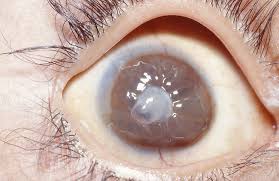
Prevention of Night Blindness and Xerophthalmia
Night blindness is often one of the first signs of a Vitamin A deficiency. It happens because the eyes can't regenerate rhodopsin, a key molecule for seeing in low light. Taking chewable Vitamin A helps restore this process and protects against further vision loss.
A deficiency can also lead to xerophthalmia, a condition that causes severe dryness and damage to the eyes. In regions with widespread malnutrition, using supplements can help prevent these harmful conditions.
Support for Healthy Immune Function
The effects of Vitamin A, on the system are significant. It boosts the integrity of barriers and controls lymphocyte functions while also lowering susceptibility to infections. Chewable versions make it easier to take in communities where strong immunity's important. The importance of nutrients, in lowering the rates of illness and death among children to gastrointestinal infections highlights their significance in promoting overall health and preventing diseases, in young individuals.
Promotion of Skin and Mucous Membrane Health
Vitamin A helps keep your body's first line of defense—your skin and mucous membranes—strong and healthy, allowing them to better fight off germs. Chewable vitamin A supplements support skin health by promoting cell growth and can be helpful for dry skin or slow-healing wounds.
In dermatology, vitamin A derivatives called retinoids are often used to treat acne. They work by controlling how skin cells grow and preventing blockages in hair follicles that can lead to breakouts. Adding vitamin A to your skincare routine can also improve your skin's tone and elasticity while offering some protection against sun damage.
Maintenance of Reproductive Health
Vitamin A is vital for both male and female reproductive health. It's essential for the formation of reproductive cells, proper fetal growth, and a healthy placental function. A deficiency can lead to fertility problems and developmental abnormalities.
During times of increased need, like pregnancy, chewable supplements are a simple and effective way to ensure a consistent intake of this important vitamin.

Vitamin A for Dogs
Chewable Vitamin A supplements aren't just for humans; they're also great for dogs. They help support a dog's vision, strengthen their immune system, and maintain healthy skin.
A vitamin A deficiency in dogs can lead to problems with growth, vision, and a higher risk of infections. Flavored supplements designed for pets make it easy and enjoyable to ensure your dog gets the nutrients they need.
Vitamin A for Hair
For healthy, vibrant hair, your hair follicles need proper nourishment. Vitamin A helps your scalp produce enough sebum (natural oils), which keeps your scalp hydrated. A deficiency can lead to brittle hair and hair loss, while a balanced intake promotes shiny, strong hair. Chewable Vitamin A is an easy way to boost hair health, especially when taken with other key nutrients.
Vitamin A and Autism
Studies are currently exploring the link between Vitamin A and brain development, including its potential role in conditions like autism spectrum disorders.
While there's no definitive proof yet, some theories suggest that Vitamin A may influence the creation of neurotransmitters and affect the gut-brain connection.
Chewable supplements are a great option for these studies because they make it easier for children to take the medication consistently. While the effectiveness of this treatment is still being researched, the potential benefits for brain development are a promising area for future use of Vitamin A.

Off-Label Uses of Vitamin A
Use in Acne Management
Vitamin A has been used in skincare for a long time, especially for controlling oil production and skin cell turnover. While prescription creams are the main treatment for acne, chewable vitamin A supplements can be a helpful addition.
By improving the way skin cells grow, vitamin A helps reduce blocked pores and the formation of blackheads and whiteheads. It can be particularly useful for those with mild to moderate acne who want to support their skin health through nutrition in addition to their regular skincare routine.
The benefits of taking vitamin A include:
- Reduced oil production.
- Better skin cell regeneration.
- Extra support for topical treatments.
Role in Wound Healing and Tissue Repair
Vitamin A is important for healing because it helps cells grow and produce collagen, both of which are essential for repairing tissues. It also helps control inflammation, so the healing process can happen more efficiently.
While chewable Vitamin A isn't a standard treatment for wound healing, it can provide extra nutritional support for people with damaged skin. Studies have shown that it can improve wound closure, reduce scarring, and speed up the formation of new
Support in Measles Treatment in Children
Studies show that giving Vitamin A supplements to children can help reduce the severity and death rate from measles. Measles often causes eye and immune system complications, but Vitamin A's protective effects help ease both.
Chewable forms are especially helpful for children because they're easier to give than capsules or shots. The supplements help prevent blindness, strengthen the immune system, and speed up recovery.

Potential Application in Cancer Prevention Research
Due to its antioxidant and gene-regulating properties, Vitamin A is being studied for its potential role in cancer prevention.
Laboratory research suggests that retinoids, a form of Vitamin A, may help control the cell cycle, stop cells from becoming cancerous, and even trigger the death of precancerous cells.
While more research is needed before this can be used clinically, scientists are exploring Vitamin A's potential to prevent certain cancers. Chewable supplements aren't a substitute for proven cancer treatments, but they are a promising area in the ongoing research into cancer prevention.
Dermatological Benefits Beyond Approved Indications
Beyond their standard uses, Vitamin A supplements may offer benefits for long-term skin issues, sun damage, and discoloration. These potential effects are due to how Vitamin A influences the cells that produce pigment (melanocytes) and how it supports the renewal of the skin's outer layer (epidermis). While not yet officially approved for these purposes, ongoing research and clinical data suggest Vitamin A plays a role in maintaining strong, healthy-looking skin.
Dosage and Administration
Recommended Dietary Allowances (RDA) for Different Age Groups
The amount of Vitamin A you need each day depends on your age, sex, and whether you're pregnant or breastfeeding. These recommendations are designed to ensure you get enough without reaching toxic levels. Daily recommended intakes are typically measured in micrograms of retinol activity equivalents (RAE).
Here are the general daily recommendations:
- Infants (0–12 months): 400–500 mcg RAE
- Children (1–8 years): 300–400 mcg RAE
- Adolescents (9–18 years): 600–900 mcg RAE
- Adults: 700 mcg RAE for women, 900 mcg RAE for men
- Pregnant women: 770 mcg RAE
- Lactating women: 1,200–1,300 mcg RAE
Standard Dosage for Vitamin A Chewable Supplements
Chewable Vitamin A supplements typically provide between 2,500 IU and 10,000 IU per tablet. This dosage generally meets the needs of adults and teenagers without causing an excess buildup of the vitamin. In some cases, higher doses may be recommended to treat a deficiency, but this should always be done under a doctor's supervision.
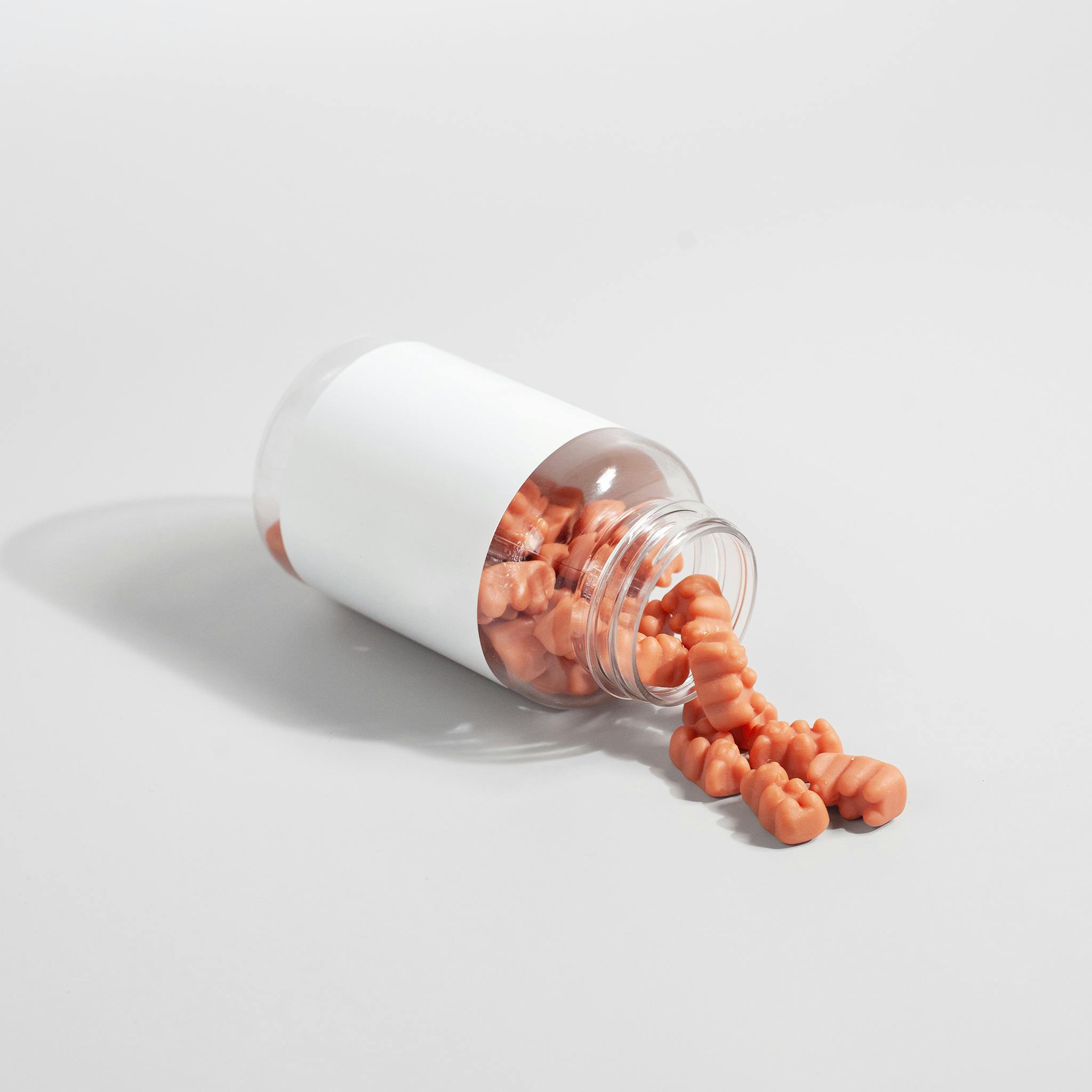
Vitamin A for Kids
Children require a specific amount of Vitamin A to support their growth, development, immune system, and vision.
Because children often prefer them, chewable supplements are a convenient and popular way to get this nutrient. A typical dose for children ranges from 1,000 to 3,000 IU, which is enough to meet their needs without risking an overdose. It's important to avoid giving too much Vitamin A, as high doses can lead to serious problems like liver damage and bone issues.
Administration Guidelines for Best Absorption
Because Vitamin A is fat-soluble, your body needs dietary fat to absorb it properly. For the best results:
- Take your supplement with a meal that includes healthy fats or oils.
- Don't take it on an empty stomach, as this will reduce how much of the vitamin your body can use.
- Taking it at the same time each day helps maintain a consistent level of the nutrient in your body.
Since chewable formulas dissolve quickly, they are easily absorbed, which makes for a more predictable and effective dose.
Adjustments for Patients with Specific Medical Conditions
Certain health conditions can affect how your body handles Vitamin A. People with liver problems, alcoholism, or conditions that impact nutrient absorption may need to adjust their dosage. Since poor kidney function can also affect metabolism, it's important for these individuals to be monitored.
In dermatology, doctors may recommend higher doses of Vitamin A to treat conditions like acne. These doses are carefully monitored to ensure they are effective while also avoiding the risk of hypervitaminosis, or Vitamin A toxicity.

Administration in Special Populations
Administration to Children: Safe Dosage Ranges and Benefits
Safe Vitamin A supplementation is essential for children's well-being. Doses typically range from 1,000 to 3,000 IU, depending on a child's age and nutritional status.
The benefits include a stronger immune system, better vision in low light, and healthier skin. However, taking too much can cause side effects like irritability, drowsiness, and bone tenderness, which is why it's so important to follow dosage guidelines carefully.
Administration to Elderly: Considerations for Absorption and Tolerance
As people age and get older their ability to absorb nutrients may decrease because of changes, in the system and other health conditions they may have.
Strategies, for taking supplements should aim to prevent deficiencies while also avoiding intake.
Administering doses regularly, alongside meals is typically favored as it reduces risks to the liver and skeletal structures.
It might be recommended to monitor the levels of retinol in the blood when taking supplements for a period of time.
Administration to Pregnant Women and Nursing Mothers: Recommended Limits, Safety Concerns, and Teratogenic Risk
Getting enough Vitamin A is essential during pregnancy for the development of a fetus's organs and vision. However, taking too much can be dangerous and has been linked to birth defects, such as heart problems.
For this reason, pregnant women should aim for a daily intake of 770 mcg RAE, and they should not exceed 3,000 mcg RAE from supplements and animal-based foods.
During breastfeeding, the need for Vitamin A increases to about 1,300 mcg RAE to support the newborn's growth. Careful regulation is key to ensuring both the mother and baby receive the benefits of Vitamin A without any risk of harm.

Side Effects of Vitamin A
Overview of Possible Side Effects
Vitamin A is an essential nutrient, but it's also very powerful. While a certain amount is beneficial, too much can cause a range of side effects. How susceptible you are to these side effects depends on your age, liver health, diet, and any other medications you take.
Even short-term use can cause minor, temporary discomfort. However, continuous high-dose use can lead to more serious issues, including:
- Skin and neurological problems
- Stress on the liver and gallbladder
- Transient discomforts shortly after dosing
- Cutaneous and neurological manifestations with continued use
- Hepatobiliary strain with sustained high intake
Common Side Effects: Nausea, Headache, Dizziness, Skin Irritation
Mild side effects are common, especially if you take a large dose on an empty stomach. These usually go away if you lower the dose or take the supplement with food.
Possible mild reactions include:
- Upset stomach or nausea if taken without food.
- Headaches or dizziness.
- Skin irritation, such as dryness, itching, or redness.

- Fatigue or drowsiness.
To help prevent these issues, drink plenty of water, take the supplement with food, and avoid taking it at the same time as other fat-soluble vitamins.
Less Common but Serious Side Effects: Liver Toxicity, Bone Pain, Intracranial Pressure
Serious Vitamin A toxicity is rare but can be significant, usually from taking extremely high doses for a long time.
Symptoms of serious toxicity include:
- Liver damage, which can cause elevated liver enzymes, blocked bile flow, and an enlarged liver.
- Bone pain and joint aches due to a change in how your bones are broken down and rebuilt.
- Intracranial hypertension (also known as pseudotumor cerebri), which can cause severe headaches, vision problems, and swelling of the optic nerve.
- Hair loss and brittle nails.
If you experience vision problems, a severe headache, or jaundice (yellowing of the skin), you should seek medical help immediately.
Vitamin A Toxicity in Dogs
Pets, especially dogs, can get Vitamin A toxicity (hypervitaminosis A) if they eat too many liver treats or too much cod liver oil.
Symptoms to Watch For
- Acute (sudden) signs: vomiting, lethargy, and a lack of coordination.
- Chronic (long-term) signs: weight loss, skeletal deformities, stiffness, and neck pain.
If you suspect your pet has Vitamin A toxicity, you must get them to a vet immediately. The vet will correct their diet and provide supportive care. Always store human supplements where your pet can't get to them, and never give your pet a Vitamin A product without first consulting your veterinarian.
Overdosage of Vitamin A
Symptoms of Acute Toxicity (Nausea, Vomiting, Blurred Vision)
A large, single dose of Vitamin A can lead to an acute overdose with rapid and severe symptoms, including:
- Intense nausea and vomiting
- Blurred vision, light sensitivity, and dizziness

- Severe headache, irritability, or drowsiness
- Peeling skin (desquamation) in more severe cases, which may appear a few days later
If you experience these symptoms, you should get immediate medical help to rule out increased pressure in your brain and to balance your body's fluids and electrolytes
Chronic Overdose Risks (Liver Damage, Osteoporosis, Birth Defects)
Chronic Vitamin A toxicity develops slowly over weeks or months from consistently taking doses above the recommended limit. This can lead to a number of serious, long-term health problems:
- Liver damage, including an enlarged liver, scarring, and fatty liver disease.
- Weaker bones, which can reduce your bone density and increase your risk of fractures.
- Birth defects, such as facial and heart abnormalities, if a pregnant woman takes too much.
- Skin problems, including hair loss, dry skin, and brittle nails.
If you take Vitamin A for a long time, it's essential to have your liver enzymes checked and to carefully track
Emergency Management and Treatment Strategies
Treatment for a Vitamin A overdose focuses on stopping the intake, stabilizing the patient, and protecting their organs.
First, all Vitamin A and other retinoid supplements should be stopped immediately. Then, doctors will provide supportive care, such as medication for nausea and pain, as well as fluid management.
Patients will be evaluated for liver function and electrolyte levels. If symptoms include vision problems, an eye exam will be performed to check for swelling of the optic nerve. An ophthalmologist may also be consulted.
To prevent future incidents, patients should be educated on the safe upper limits for Vitamin A and taught to identify hidden sources of the vitamin. Most acute overdoses get better once the vitamin is stopped and supportive care is given, but chronic toxicity may require long-term monitoring.
Warnings and Important Precautions
Safe Upper Intake Levels to Avoid Toxicity
To reduce the risk of Vitamin A toxicity, it's important to stay below the established upper intake levels (ULs). These limits apply to preformed Vitamin A (like retinol) and do not apply to carotenoids from fruits and vegetables.
Here are the daily upper intake limits:
- Children 1–3 years: 600 mcg RAE
- Children 4–8 years: 900 mcg RAE
- Children 9–13 years: 1,700 mcg RAE
- Adolescents 14–18 years: 2,800 mcg RAE
- Adults 19+ years: 3,000 mcg RAE
Risks of Long-Term High-Dose Use
Consistently taking high doses of Vitamin A can increase the risk of liver damage and weakened bones. Early signs of toxicity can be subtle and easily overlooked, such as fatigue, mood changes, and headaches.

Interaction with Alcohol and Pre-Existing Liver Disease
Alcohol and Vitamin A can both be processed by the liver, and when taken together, they increase the risk of liver damage. This risk is even higher for people with pre-existing conditions like hepatitis, cirrhosis, or fatty liver disease, who need to be extra cautious and under a doctor's supervision.
To reduce this risk, you should:
- Minimize or completely avoid alcohol while taking supplements.
- Stick to lower doses for a specific period.
- Consider alternative treatments if your liver enzyme levels remain high.
Precautions in Patients with Osteoporosis or High Fracture Risk
Too much retinol (a form of Vitamin A) can interfere with how Vitamin D builds and maintains bones, making them more fragile. If you have low bone density, are postmenopausal, or take long-term steroids, you should avoid high doses of Vitamin A.
To protect your bones:
- Keep your total Vitamin A intake at or below the recommended daily allowance, unless a doctor tells you otherwise.
- Make sure you're getting enough calcium and Vitamin D.
- If you experience muscle pain or frequent fractures, have your need for Vitamin A reevaluated by a doctor.
Vitamin A Toxicity in Dogs
Pets are not the same as humans, and their medication needs are different. Accidentally giving them supplements meant for people can be harmful.
- Avoid giving your pet too many fish liver oils or liver-rich treats.
- Never give your pet any supplements without first consulting a vet.
- Store all human supplements securely to prevent your pet from getting into them.
Recognizing the signs of toxicity early and getting professional help right away can significantly improve your pet's outcome.

Contraindications
Hypersensitivity to Vitamin A or Formulation Components
If you've had a bad reaction to Vitamin A or any of the other ingredients in a supplement, you should not take it. Even a small amount can cause an allergic reaction, ranging from hives and itching to a severe, life-threatening anaphylactic reaction. Always check the ingredient list and your allergy history before you start taking any new supplement.
Known Hypervitaminosis A
If you've been diagnosed with hypervitaminosis A (too much vitamin A in your body), you should not take any more Vitamin A. This condition, caused by excessive buildup, can lead to serious toxicity.
Symptoms like increased pressure in your skull, an enlarged liver, hair loss, and peeling skin are major warning signs. Continuing to take Vitamin A when you have these symptoms will only make the condition worse and could lead to long-term health problems.
Severe Liver Dysfunction
Since Vitamin A is stored and processed by the liver, people with severe liver disease—like cirrhosis or advanced hepatitis—should not take Vitamin A supplements. Their livers can't properly control the levels of the vitamin, which puts them at a high risk of developing toxicity, even at normal doses. For these patients, avoiding supplementation and being closely monitored by a doctor is essential.

Careful Administration Considerations
Patients with Kidney Impairment
Renal (kidney) dysfunction can change how your body gets rid of vitamin A byproducts, causing them to stay in your system longer.
If you have kidney problems, it's important to be cautious with supplements. To reduce the risk of buildup and potential kidney damage, a doctor may recommend lower doses, monitoring your blood levels, and avoiding other treatments that could harm your kidneys.
Patients with Concurrent Medication Affecting Liver Function
Taking certain drugs—like those for tuberculosis, fungal infections, or epilepsy—at the same time as Vitamin A can increase the risk of liver damage. This happens because both are processed by the liver. In these cases, it's important to monitor liver enzymes and adjust medication dosages as needed closely.
Use in Patients with Malabsorption Syndromes
Certain medical conditions, such as celiac disease and Crohn's disease, can make it difficult for your body to absorb fat-soluble vitamins, including Vitamin A. This is often due to problems with the pancreas.
For these patients, doctors may recommend water-miscible forms of Vitamin A or closely monitored, higher doses. The decision to use these methods is made on a case-by-case basis, weighing the risks of a deficiency against the potential for toxicity.
Drug and Food Interactions
Interaction with Retinoid Medications (Isotretinoin, Acitretin)
Using Vitamin A alongside retinoids greatly raises the chance of toxicity occurring together. The two categories have pathways that can increase dryness in membranes and liver toxicity while also potentially causing increased pressure, within the skull. Combinations, like that are usually not recommended unless closely monitored by professionals.

Interaction with Anticoagulants (Increased Bleeding Risk)
Taking high doses of Vitamin A can interfere with blood clotting and increase the effects of blood thinners, such as warfarin. This can raise your risk of bleeding and make it harder for doctors to manage your medication. If you need to take both, it's essential to monitor your blood's ability to clot.
Effects of Alcohol Consumption on Vitamin A Metabolism
Alcohol can speed up your liver's metabolism while also making it harder for the liver to store Vitamin A. When you combine the two, it significantly increases the risk of liver damage from toxicity.
Chronic drinkers are especially at risk because long-term alcohol use depletes the liver's stores of the vitamin and raises the danger of toxicity when combined with supplements. For this reason, it's best to avoid or greatly limit alcohol while taking Vitamin A.
Role of Dietary Fat in Vitamin A Absorption
Because Vitamin A is fat-soluble, your body needs fat to absorb it properly. Taking the vitamin with a fatty meal can significantly boost how much of the nutrient your body can use. Conversely, a low-fat diet or conditions that affect fat absorption can make supplements less effective. To get the most out of your Vitamin A supplements, it's important to include some fat in your diet.

Handling and Storage Precautions
Recommended Storage Conditions (Temperature, Light Protection)
Store your Vitamin A supplements at room temperature, between 15°C and 25°C (59°F and 77°F). Avoid leaving them in direct sunlight or in a humid environment, as this can cause them to break down faster. Keeping them in their original blister packs or in a dark container helps protect them from light and degradation.
Shelf Life and Expiration Considerations
Manufacturers determine a product's expiration date based on stability tests. Using a product after this date may result in it being less effective and could lead to side effects from degraded ingredients. Therefore, it's important to regularly check for and dispose of any expired items in both your home and medical settings.
Safe Handling in Households with Children
If children accidentally swallow a large amount of Vitamin A, it can quickly lead to toxicity. To prevent this, always use child-resistant containers, store supplements out of their reach, and make sure everything is clearly labeled. If a child ever swallows something they shouldn't, get medical help immediately. Proactive safety measures are the best way to prevent these accidents.
Vitamin A Chewable, Vitamin A FAQ
- Does vitamin A help acne?
- Does vitamin A help hair growth?
- Can a vitamin deficiency cause anxiety?
- Is vitamin A bad for pregnancy?
- How much vitamin A is in Accutane?
- Are vitamin A supplements safe?
- Are vitamin A supplements effective?
- Are vitamin A and beta-carotene the same?
- Are vitamin A and retinol the same thing?
- Are vitamin A tablets good for you?
- Are vitamin A and D water soluble?
- Are vitamin A supplements good for you?
- Are vitamin A blood tests accurate?
- Are vitamin A supplements bad for you?
- Are vitamin A supplements good for skin?
- Are vitamin A supplements necessary?
- Are vitamin A fat soluble?
- Are vitamin A water soluble?
- Can vitamin A improve eyesight?
- Can vitamin A cause liver damage?
- Can vitamin A cause miscarriage?
- Can vitamin A cause acne?
- Can vitamin A cause hair loss?
- Can vitamin A be toxic?
- Can vitamin A be stored in the body?
- Can vitamin A deficiency cause blindness?
- Can vitamin A prevent measles?
- Can vitamin A cause diarrhea?
- Can vitamin A kill you?
- Can vitamin A be absorbed through the skin?
- Can vitamin A and E be taken together?
- Can vitamin A be taken daily?
- How does vitamin A help in vision?
- How does vitamin A help skin?
- How does vitamin A help the body?
- How does vitamin A help in reproduction?
- How does vitamin A work in the body?
- How does vitamin A look like?
- How does vitamin A cause hypercalcemia?
- How is vitamin A too much?
- How does vitamin A act as an antioxidant?
- How does vitamin A help the immune system?
- How does vitamin A help in immunity?
- How does vitamin A help acne?
- What is vitamin A good for?
- What does vitamin A do for the body?
- What does vitamin A do to the skin?
- What does vitamin A deficiency cause?
- What does vitamin A do to your body?
- What is vitamin A for skin?
- When should vitamin A be taken?
- When is vitamin A deficient?
- When was vitamin A discovered?
- Which vitamin A is good for skin?
- When is vitamin A given to babies?
- Which vitamin A is bad for pregnancy?
- Which vitamin A to avoid during pregnancy?
- Why is vitamin A important?
- Why is vitamin A given in measles?
Does vitamin A help acne?
Vitamin A supports acne improvement by regulating skin cell turnover and reducing sebum production. Because of these effects, its derivatives, known as retinoids, are commonly prescribed for acne treatment.
Does vitamin A help hair growth?
Sufficient vitamin A plays a role in promoting hair growth through the maintenance of cell function; however excessive consumption can lead to hair loss.
Can a vitamin deficiency cause anxiety?
Certain vitamin deficiencies, like B vitamins and vitamin D can lead to anxiety symptoms by impacting brain function and neurotransmitter balance while occasionally affecting vitamin A as well.
Is vitamin A bad for pregnancy?
How much vitamin A is in Accutane?
Accutane (Isotretinoin) a form derived from vitamin A but not measured in vitamin A units, for dosage determination like most medications are based on body weight, in milligrams when prescribed.
Are vitamin A supplements safe?
Taking Vitamin A supplements is usually safe as long as you stay within the recommended limits; however excessive doses can lead to toxicity concerns.
Are vitamin A supplements effective?
Vitamin A supplements can indeed help address deficiencies and promote vision and skin while supporting function; however, they should be used with care.
Are vitamin A and beta-carotene the same?
Beta carotene acts as a precursor to vitamin A in plants; however; vitamin A itself is the form in animal sources and supplements.
Are vitamin A and retinol the same thing?
Vitamin A comes in different forms, such as retinol used in skincare and supplements; other forms include retinoic acid.
Are vitamin A tablets good for you?
Taking Vitamin A tablets can help if you lack it in your body; however, taking them unnecessarily or in large amounts can be harmful to your health
Are vitamin A and D water soluble?
Both vitamin A and vitamin D are classified as vitamins and not water soluble ones.
Are vitamin A supplements good for you?
Taking them as directed can help with a lack of nutrients; however, using them too much can harm the liver, and bones may lead to other health problems.
Are vitamin A blood tests accurate?
Blood tests for Vitamin A can check the serum levels; however they might not show the picture of the body's stores of this vitamin so it's important to interpret the results with caution.
Are vitamin A supplements bad for you?
Excessive consumption of these substances may result in effects, like liver damage and bone pain, and cause headaches to occur.
Are vitamin A supplements good for skin?
The maintenance of skin is aided by Vitamin A; often utilized for combating acne and reducing signs of aging are retinoid based supplements and topical treatments.
Are vitamin A supplements necessary?
If you have a lack of something, in your body is the only time supplements are truly needed because usually people can get what they need from the food they eat.
Are vitamin A fat soluble?
Vitamin A is a type of vitamin that is stored in both the liver and fatty tissues of the body.
Are vitamin A water soluble?
Vitamin A does not dissolve in water. Is instead soluble in fat.
Can vitamin A improve eyesight?
The importance of Vitamin A, in maintaining vision is evident in lighting situations, as it helps prevent night blindness when there is a deficiency in the body.
Can vitamin A cause liver damage?
Consuming vitamin A in the long run can lead to liver damage and toxicity concerns.
Can vitamin A cause miscarriage?
Taking high amounts of vitamin A while pregnant can raise the chances of experiencing a miscarriage and giving birth to babies with defects.
Can vitamin A cause acne?
In some situations, taking large amounts of vitamin A supplements might exacerbate skin irritation or acne, but using them in moderation could help alleviate these issues.
Can vitamin A cause hair loss?
Having vitamin A in your system can actually cause hair loss as a sign of toxicity.
Can vitamin A be toxic?
Consumption of vitamin A can result in toxicity and may cause symptoms such, as nausea, liver damage, bone discomfort and neurological complications.
Can vitamin A be stored in the body?
Vitamin A is a type of vitamin that can be stored in the liver for months since it is fat soluble.
Can vitamin A deficiency cause blindness?
A significant lack of vitamin A can result in night vision problems. It may eventually cause blindness as a result of damage to the cornea.
Can vitamin A prevent measles?
Vitamin A supplements may help reduce the risk and mortality of measles in children who have a vitamin A deficiency.
Can vitamin A cause diarrhea?
Consuming amounts of vitamin A may lead to issues, like queasiness and stomach upset due, to its toxic effects.
Can vitamin A kill you?
Can vitamin A be absorbed through the skin?
While vitamin A derivatives like retinol can be absorbed into the skin for local effects, your body absorbs much less of it this way compared to when you consume it orally.
Can vitamin A and E be taken together?
You can definitely take vitamin A and vitamin E together; in fact, vitamin E may even help shield vitamin A from harm.
Can vitamin A be taken daily?
Taking Vitamin A daily within the recommended guidelines is safe; however, exceeding those levels can result in toxicity issues.
How does vitamin A help in vision?
Vitamin A is Essential, for creating rhodopsin in the retina to aid vision in conditions.
How does vitamin A help skin?
Supports skin cell renewal and helps decrease keratin accumulation; often included in therapies, for acne and aging.
How does vitamin A help the body?
Essential functions of Vitamin A include supporting vision health, boosted immunity levels, reproductive system maintenance, growth stimulation and ensuring the well-being of tissues.
How does vitamin A help in reproduction?
Men need Vitamin A, for sperm development while women rely on it for ovarian and placental function to support normal reproductive processes.
How does vitamin A work in the body?
The function of Vitamin A involves controlling gene activity and promoting cell specialization while also aiding vision health and immune system strength in addition, to supporting growth processes in the body.
How does vitamin A look like?
Vitamin A, in its form is a substance that dissolves in fat and can be found as retinol or retinoic acid.
How does vitamin A cause hypercalcemia?
Having much vitamin A can trigger the breakdown of bones. Release calcium into the bloodstream which can result in high levels of calcium known as hypercalcemia.
How is vitamin A too much?
When you consume Vitamin A regularly and surpass the recommended upper intake level limit consistently can lead to experiencing toxicity symptoms like headaches and liver damage along with bone pain issues.
How does vitamin A act as an antioxidant?
The potency of Vitamin A, as an antioxidant is not significant on its own; beta carotene, which precedes it, possesses qualities that shield cells from harm caused by free radicals.
How does vitamin A help the immune system?
How does vitamin A help in immunity?
Enhancing immunity through the production of lymphocytes and improving antibody responses are some of the functions of Vitamin A along with maintaining defenses.
How does vitamin A help acne?
The turnover of skin cells is controlled by Vitamin A. It also decreases the production of much sebum leading to fewer blocked pores and fewer breakouts, like acne.
What is vitamin A good for?
Maintaining vision and supporting the system are some benefits of Vitamin A, alongside aiding in growth and development and keeping the skin and mucous membranes healthy.
What does vitamin A do for the body?
Essential functions, like vision support and immune defense, are backed by Vitamin A along with maintaining the health of tissues and aiding in communication.
What does vitamin A do to the skin?
Boosting cell renewal and diminishing keratin accumulation are some benefits of Vitamin A, for the skin; it also aids in managing acne and slowing down the appearance of aging signs.
What does vitamin A deficiency cause?
Lack of nutrients can lead to issues like difficulty seeing in the night blindness) dry eyes and skin problems as well, as weakened immune system function and slower growth, in children; in extreme situations this could even result in permanent loss of vision.
What does vitamin A do to your body?
The role of Vitamin A includes controlling gene activity and maintaining the health of cells while also supporting the system and ensuring normal growth of organs and tissues.
What is vitamin A for skin?
Vitamin A is beneficial for the skin as it helps with acne reduction and wound healing while also preventing dryness; it is also commonly included in retinoids for age therapy purposes.
When should vitamin A be taken?
Ideally, consume Vitamin A with meals that include fat since it is fat-soluble and gets absorbed effectively with oils.
When is vitamin A deficient?
In situations where the diet is lacking nutrients or fat absorption is inadequate and during periods of increased requirements, like childhood or pregnancy a deficiency may arise.
When was vitamin A discovered?
In 1913 scientists found Vitamin A for the time recognizing it as a fat soluble element necessary, for animal growth.
Which vitamin A is good for skin?
Retinol and its variations are widely known for their effects, in improving skin health. Are frequently employed in dermatological therapies.
When is vitamin A given to babies?
In areas where there is a risk of vitamin deficiency, among infants and young children supplementation, with vitamin A is provided to lower mortality rates and prevent blindness.
Which vitamin A is bad for pregnancy?
Excessive amounts of vitamin A forms, like retinol and retinoic acid, can be dangerous during pregnancy because they may increase the chances of birth defects.
Which vitamin A to avoid during pregnancy?
It's advisable for women to steer clear of consuming many retinol-based supplements and drugs such as isotretinoin.
Why is vitamin A important?
Why is vitamin A given in measles?
In cases of measles treatment, for children includes administering Vitamin A to minimize complications and boost immunity while reducing the chances of death.

